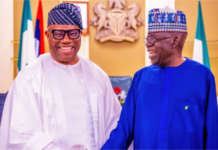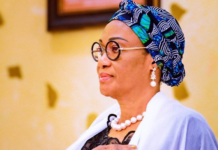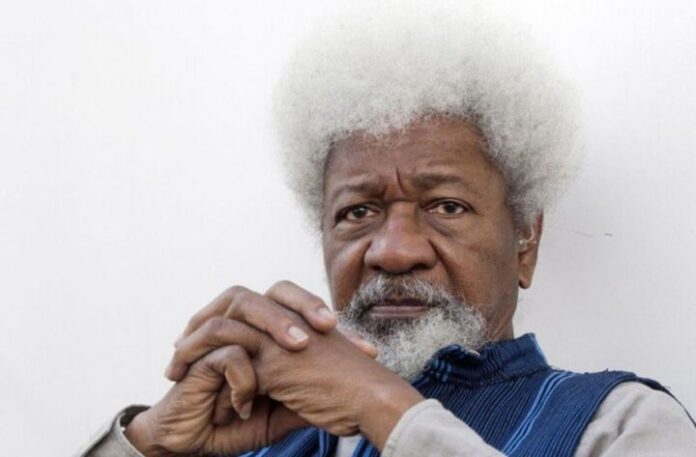Nobel Prize-winning author Wole Soyinka on Monday lambasted US President Donald Trump’s designation of Nigeria as a “Country of Particular Concern” for alleged Christian persecution, cautioning that such “sweeping statements” only inflame divisions and obscure the nation’s battle against political extremists masquerading as religious zealots.
Speaking in an exclusive interview with Democracy Now amid a brewing diplomatic storm, the 91-year-old literary giant reframed Nigeria’s spiralling insecurity not as a holy war between Christians and Muslims, but as a toxic brew of governance failures and opportunism that has let impunity fester for decades.
“We must separate Nigeria’s long-standing internal problems from President Trump’s recent response. The Christian–Islam, or Islam-versus-the-rest dichotomy has existed for decades. It became truly horrendous when politics got mixed up with religious differences,” Soyinka said, pinpointing how leaders’ cynical exploitation of faith has eroded accountability.
He spotlighted the unpunished 2022 lynching of a female student in Sokoto accused of blasphemy against Prophet Muhammad — captured on video yet resulting in no convictions — as a stark emblem of the rot. “When perpetrators of such horrors go free, it strengthens the perception that a brutal war is going on between Christians and Muslims. In truth, we are dealing with extremists – political Islamists, sometimes known as ISWAP or Boko Haram – not with Muslims as a people,” the playwright charged, decrying alliances with global terror outfits that arm these factions with weapons outpacing Nigeria’s military.
Soyinka’s remarks follow Trump’s weekend threat to slash US aid and potentially launch military strikes unless Abuja halts the “killing of Christians,” a claim the Federal Government swiftly rebutted as a misrepresentation of broad-based banditry and insurgency afflicting all faiths.
Information Minister Mohammed Idris, during a visit to Jigawa State Governor Umar Namadi, sought to soothe tensions, affirming: “President Tinubu has the capacity to amicably resolve the matter” while underscoring the administration’s resolve to shield citizens and preserve ties with Washington.
The Nobel laureate, whose US visa revocation he wryly linked to his unflinching critiques of Trump — once likening the president to Uganda’s Idi Amin — dismissed any need for flattery. “I have a feeling that I haven’t been flattering Donald Trump — and I see no reason to do that,” Soyinka quipped, adding that the commander-in-chief ought to feel “flattered” by the historical parallel.
Echoing Soyinka’s call for nuance, the Coalition of Northern Groups (CNG) decried the “Christian genocide” narrative as geopolitical sleight-of-hand, citing Armed Conflict Location & Event Data Project (ACLED) figures: Of over 20,400 civilian deaths from violence between January 2020 and September 2025, verified religious breakdowns showed 317 Christians and 417 Muslims slain.
CNG National Coordinator Jamilu Charanchi warned: “Trump’s comments were capable of fuelling sectarian tension at a time Nigerians are striving to overcome insecurity and division,” branding the rhetoric a ploy to destabilise the Sahel through fabricated pretexts for intervention.
As the row simmers, with 9,662 violent deaths logged nationwide in 2024 alone — 86 percent in the north — Soyinka’s voice cuts through the fray, advocating a reckoning with “extremist political Islamists” over divisive binaries that could unravel Africa’s giant.





